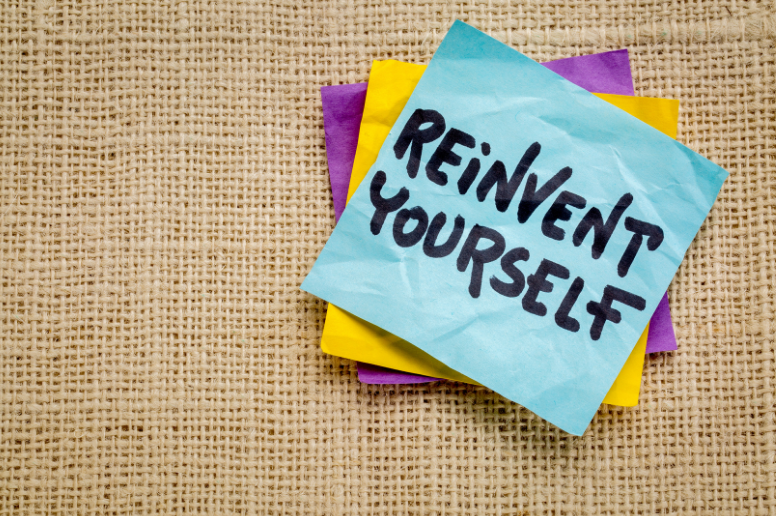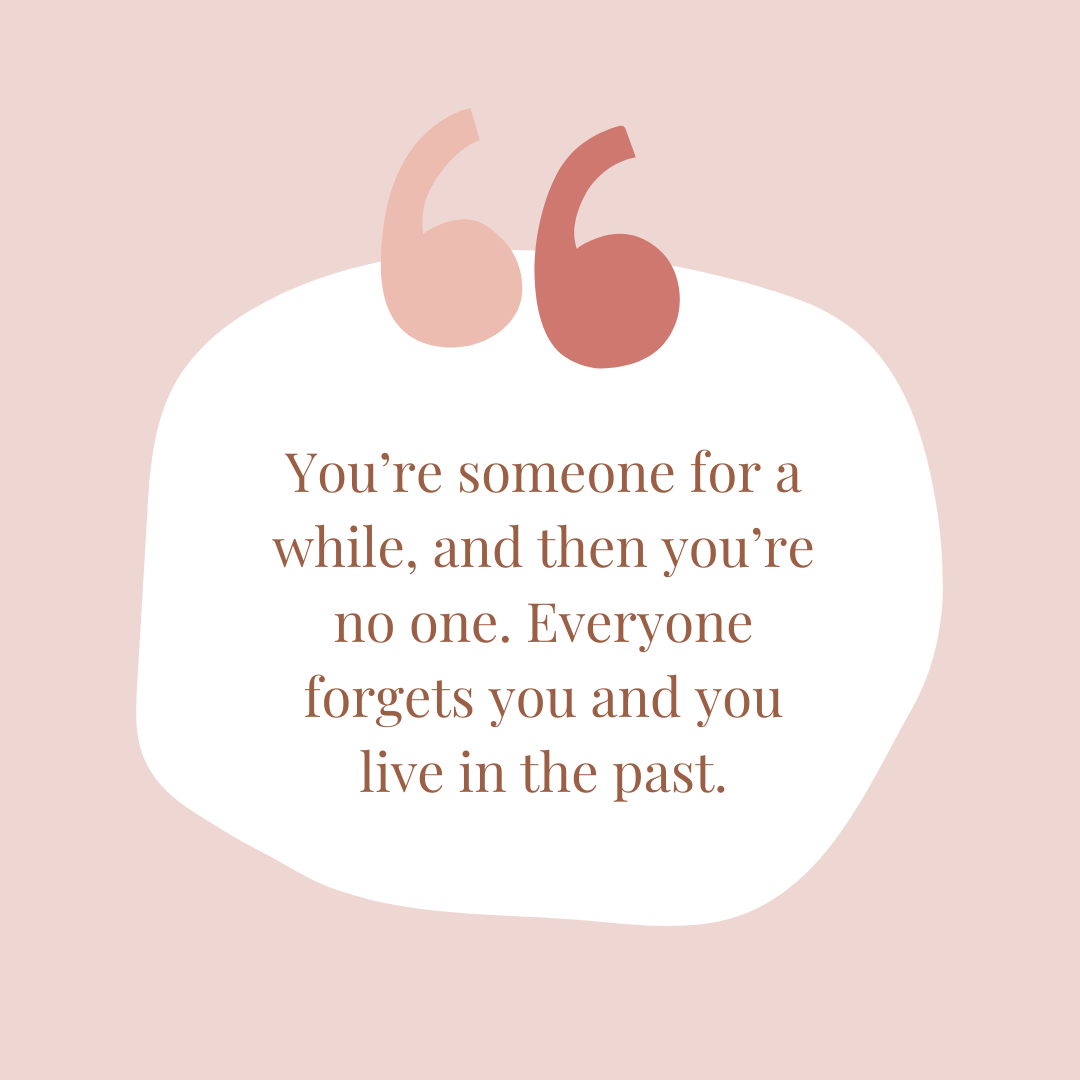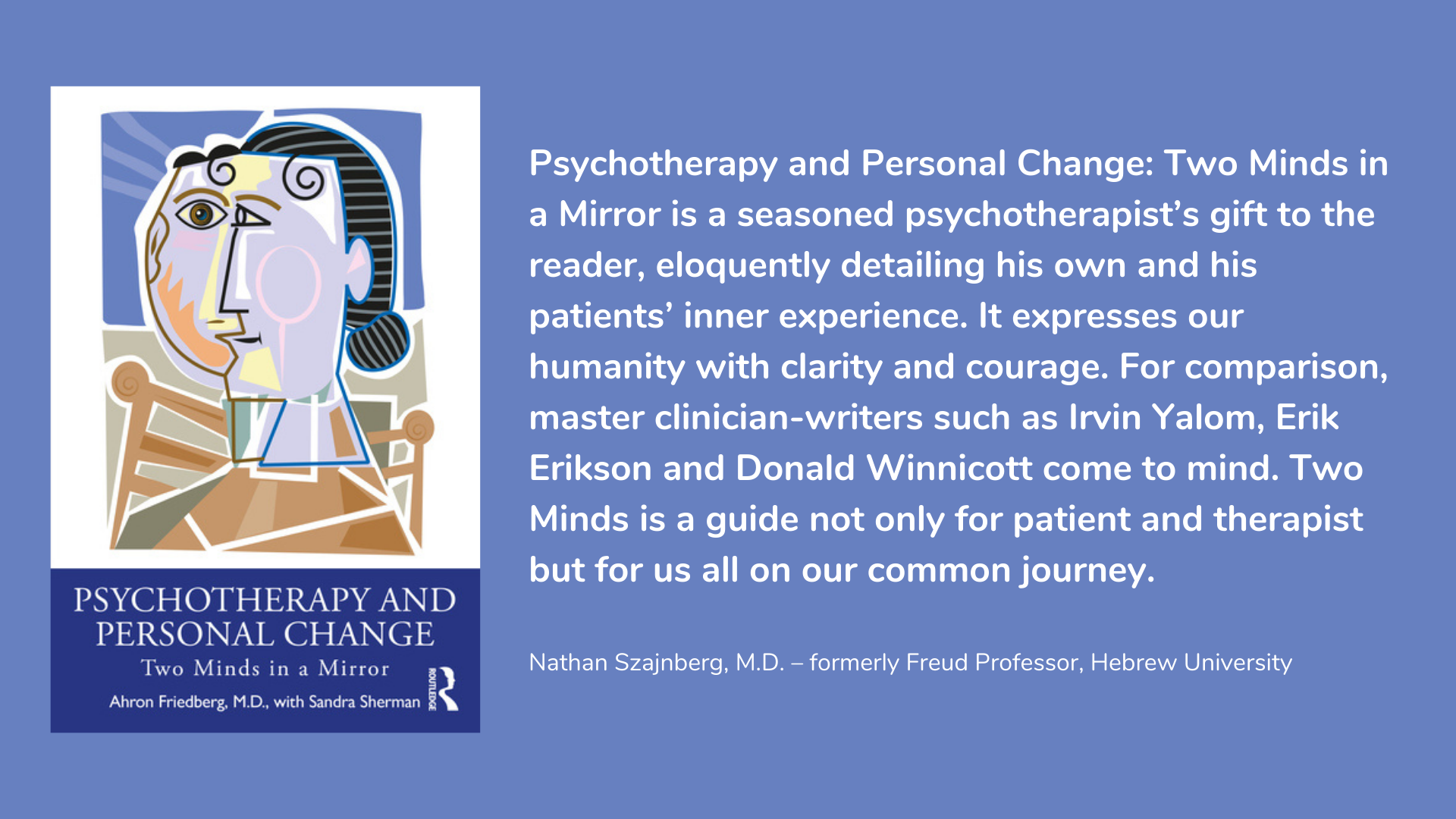Reinventing Yourself in a Pandemic
You Have To Believe That You Can
“I’m so full of regret,” Lainie told me. “It’s like when the present disappears, you just want to live your life over so you end up in a different place.” Lainie is 60, a writer, who came to me when she felt that all she had left were her mistakes. She’d always had regrets, she said, but until now they’d been air-brushed out – she’d had work, friends, and a knack for pulling rabbits out of seemingly bottomless hats. “I could always reinvent myself,” she insisted, “but now I can’t.” The result was that she’d come face-to-face with a life that she felt she’d mismanaged. She had nothing to fall back on – no relationship, shaky finances, no kids or grandchildren. “I can only blame myself. My life’s been a series of missed opportunities.”
In the midst of the pandemic, Lainie saw no way to jump-start her life again. She spent hours every day blaming herself for everything she could have done differently. “If I’d managed better, I wouldn’t feel so washed up.” It was as if Lainie had always kept one step ahead of confronting herself, until the virus made any new effort seem futile. “It forced me to withdraw,” she said. Her past had returned with a vengeance, mocking her in weird, demeaning ways. Late at night, when she couldn’t stand watching another Columbo or Morse, she’d troll her old boyfriends – maybe their wives had died. She saw who was still at the companies she’d left – maybe they’d been kicked upstairs. She looked up recipes, imagining how she’d make them for the guy she should have married. “How stupid can you get?” she implored.
The pandemic left Lainie feeling stuck inside her head, while her head was full of an encumbered past. She wanted me to help her get past her past, since she didn’t see how she could on her own. Her tried-and-true method – just execute some radical change – didn’t seem like it would work anymore. “Who can do anything in this environment,” she asked, “let alone something life-changing?” She really thought she’d go crazy feeling sorry for herself, like Cate Blanchett’s character in Blue Jasmine.
I always want to help patients, but I generally keep an even disposition. If I got too involved emotionally, I’d be less able to be objective. Yet Lainie’s case was challenging this approach (as individuals sometimes do). I was moved by this woman, who herself seemed so overwhelmed with grief. I didn’t want her to think I was worried about her, but I was. She seemed like a lot of people who were precarious before the pandemic but who now, seemingly, had run out of options to stay afloat.
Lainie had been an account executive in a PR firm that specialized in book promotions. They worked with authors and publishers, and turned decent books into best-sellers. It was interesting for a while, but the fun was vicarious. “Everyone wants to meet the author,” she said. So Lainie decided to write her own books. She’d learned a lot on the job, and figured she had nothing to lose. Even better, she could be one of those creative types that everyone wants to meet. So, she left the firm to start writing. It was harder than she’d imagined, but she finally got a contract for a Young Adult novel about a teenage botanist whose studies of plant respiration catch the eye of NASA scientists planning to colonize exoplanet Kepler 186f (considered potentially habitable).
Lainie continued to write, but so did the competition. It was tough. She wasn’t sure if she should have left PR, and she tried some promotions on the side. She also picked up writing gigs at start-ups, and for a while she taught at a community college. In her mid-40s, she’d begun to feel scattered. But then her luck turned. She found a job as an acquisition editor at a major publisher, who wanted her to start a Young Adult imprint. Everyone said, “You’ve landed on your feet.” But after six months, she chafed at the company’s guidelines and left. “I thought I knew better than they did,” she told me. She went back to writing and sold another book, this time about a teenage colonist on Mars. It was modestly successful. But the market was moving in other directions, since space travel had progressed too slowly to sustain the kids’ interest.
Of course, Lainie had met people. She’d had several boyfriends, at least one of whom had loved her. But he was too skittish to get married. So, she lost interest. By the time he was ready, she’d become involved with the literary editor of a major publication, who promised to leave his wife but never did. She repeated that mistake with a rival author (he wrote books on teenage superheroes), and ended up hating herself. When her skittish boyfriend came around again, she rebuffed him.
So, about ten years ago Lainie seemed stalled. She took stock of everything – her career, her messed-up romances – and decided that she needed a reset. “I couldn’t stand looking at myself. I had to get out.” She found a job at a Midwest radio station that wanted to attract a younger audience. She started a call-in program that drew important advertisers, and for awhile she thought she’d found her niche. She even dated the station owner. But then the station was sold to a large investor which, in a move to cut costs, changed the format to music, traffic, and weather. Lainie moved back to New York, and six months later the pandemic hit.
“I’ve run out of options. I’m too old to keep trying,” she said. Instead, she keeps thinking about why she left PR – vanity, naïveté, a young woman’s search for fulfillment? “I was stupid. I just should have stayed put.” Her friends told her not to act precipitously, but she thought they didn’t understand her. One friend said that you never succeed at anything unless you do it for a long time. “But he started out teaching at Harvard, so I thought ‘what did he know?’” She also regretted having left the publisher. “I was restless. I was unhappy over those men – I just should have followed the guidelines, which really weren’t so bad anyway.” She thought she should have married the guy who’d finally come around again. “He was really very sweet.” In other words, she thought she should have done everything differently than she had.
So, what could I say to a woman swimming in regrets, too disheartened by history and by the present to move beyond regret towards something that might still make her happy?
“Look,” I said. “I can’t sugarcoat this. People are losing jobs. Relationships are a huge challenge. And then there’s ageism.” She knew all this. “But you can’t give in to despair – it’s immobilizing.” She knew that too. Her problem was how to get past despair. I spoke with her about the importance of continuing to try, even when she felt like giving up. She wasn’t optimistic. We talked about some practical things she might do to help herself move ahead. She suggested, “You know, instead of stalking those exes I know, I could call them up – make as many contacts and connections as I can.” Perhaps they knew of something she could do. Perhaps they’d even try to help. Of course, she’d have to update her resume, emphasizing everything she’d learned—and deal with some rejection. “I’ve learned that I make poor choices,” she said. “Well, you still have a sense of humor,” I said. “Even if it’s at your expense.”
But I really wanted her to understand that since she couldn’t change her past, there was no point berating herself for it. Rather, she could use it – the people, the experience, the know-how that had kept her going after so many setbacks. I told her that nothing would be easy, and that the pandemic would slow things down. But she had to start somewhere. I said not to lose heart if, as we start digging out of all this, other people seem to dig out somewhat faster.
I’m not sure how Lainie will do. She carries a lot of baggage. She’s afraid of believing in herself. But during this challenging time, she really has no other choice.
About The Author
Ahron Friedberg, M.D., is Clinical Professor of Psychiatry at Mount Sinai Icahn School of Medicine, New York, and served twice as President of the American Society of Psychoanalytic Physicians. He is Editor of American Academy of Psychodynamic Psychiatry and Psychoanalysis Forum, Book Editor of Psychodynamic Psychiatry.
Essential Reading
www.all-about-psychology.com/psychotherapy-and-personal-change.html



New! Comments
Have your say about what you just read! Leave me a comment in the box below.